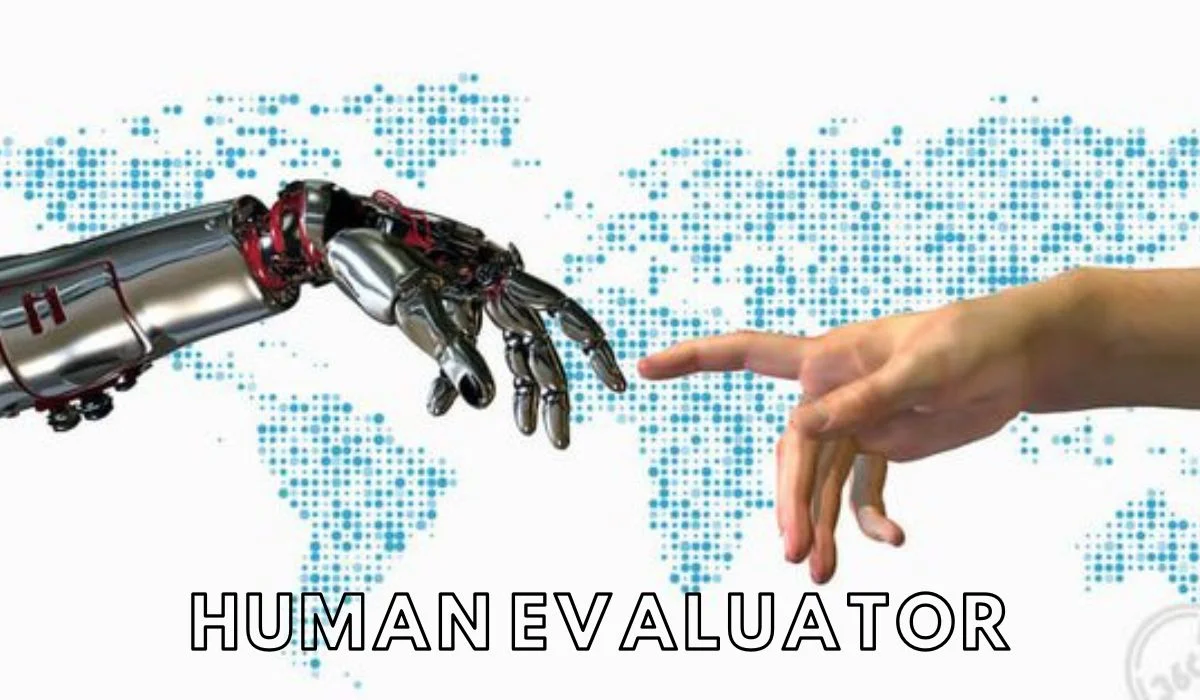As technology advances and artificial intelligence (AI) becomes a pivotal part of our daily lives, the need for human evaluator is more important than ever. These professionals play a crucial role in validating AI outputs, ensuring content quality, and optimizing user experience across digital platforms. This article delves into the world of human evaluators, their responsibilities, and why their role remains essential in an increasingly automated landscape.
Introduction
In the world of AI and data science, a human evaluator plays a key role in maintaining quality and reliability in output generated by machines. Whether it’s rating search engine results, moderating social media posts, or selecting the best recommendation for a user, human evaluators are essential. Their expertise in understanding context, emotional subtleties, and cultural relevance provides a layer of quality assurance that automated tools often cannot replicate.
Must Visit: Maximizing Customer Lifetime Value with Loomi AI
What is a Human Evaluator?
A human evaluator is an individual who manually reviews, rates, and assesses data outputs generated by AI systems or other software. These evaluators could be industry experts or skilled non-experts tasked with examining outputs for accuracy, relevance, and quality. Their assessments help refine AI models, inform system adjustments, and improve user satisfaction by providing feedback that guides further model training.
Roles and Responsibilities of Human Evaluators
Human evaluators have diverse responsibilities depending on the industry and application. Their primary focus is to ensure the quality and accuracy of output, enabling systems to perform at their best.
Evaluating AI Output Quality
AI models produce large volumes of output that need careful scrutiny to ensure they meet quality standards. Human evaluators look for errors, inconsistencies, or inaccuracies in these outputs, identifying areas where the model needs further improvement.
Content Moderation and Curation
On social media and e-commerce platforms, human evaluators often moderate and curate content, filtering out harmful, inappropriate, or low-quality posts and ensuring the content meets platform guidelines. By examining flagged content, they help maintain a safe, positive online environment for users.
Assisting in Machine Learning Model Training
Machine learning (ML) models improve with high-quality data and accurate feedback. Human evaluators annotate data, categorize information, and provide insights, creating a dataset that trains and optimizes ML algorithms. Their role in this data preparation is fundamental to the accuracy and reliability of AI applications.
Types of Human Evaluation Techniques
To ensure an efficient review process, human evaluators use various techniques that help them assess the quality of outputs and refine AI models.
Rating Outputs on a Scale
One common method is rating outputs on a predefined scale. This could be a numerical score (e.g., 1 to 5) or a grading system (e.g., A to F) that allows evaluators to provide a quick assessment of quality, relevance, or clarity.
Selecting the Best Output
When multiple output options are available, human evaluators can choose the one that best meets the desired criteria, helping to identify and reinforce high-quality responses within the system.
Rewriting or Editing Outputs
In some cases, human evaluators rewrite or edit AI-generated outputs to improve accuracy, clarity, or tone. This is especially relevant in language processing applications, where precise wording is essential to convey the correct meaning.
Providing Feedback and Comments
Human evaluators often provide comments explaining their ratings or selection choices, giving data scientists and developers valuable insights. This feedback serves as direct input for refining and adjusting the model.
Why Human Evaluators are Necessary in AI Development
Human evaluators offer a unique advantage: their ability to understand nuances, cultural references, and situational context that AI models may overlook. They can catch errors that are subtle yet crucial, such as bias in language, inappropriate references, or unintended tone. This human touch ensures that AI outputs are not only accurate but also socially and culturally appropriate.
Human Evaluation vs. Automated Evaluation
While automation can handle large datasets at speed, human evaluation provides a level of depth and understanding that automated systems struggle to achieve.
Strengths of Human Evaluators
Human evaluators excel in recognizing nuanced information, interpreting complex emotional content, and adjusting for context. Their understanding of language subtleties makes them effective in reviewing AI outputs for appropriateness and relevance.
Limitations of Automated Systems
Automated systems rely on pre-established rules and patterns, making them prone to errors in scenarios that require adaptability and sensitivity. These systems often misinterpret ambiguous language or struggle with subjective topics, leading to mistakes that human evaluators are better equipped to manage.
Skills and Qualifications of Effective Human Evaluators
The role of a human evaluator requires several specific skills to ensure high-quality assessments.
Analytical Skills
Evaluators must be able to examine outputs critically, identify patterns, and understand underlying issues to provide meaningful feedback.
Attention to Detail
Precision is crucial, as evaluators look for subtle inconsistencies and nuances. Even minor errors can impact the user experience, so detail-oriented evaluation is essential.
Technical Knowledge
Understanding the technology behind AI and machine learning can enhance the effectiveness of an evaluator. Familiarity with these fields helps them provide better context and targeted feedback.
Challenges Faced by Human Evaluators
Human evaluators face several challenges, including high workloads, mental fatigue from repetitive tasks, and pressure to maintain consistent accuracy. As AI systems evolve and data volumes increase, the need for efficient and accurate human evaluation intensifies, making it essential for organizations to address these challenges with supportive tools and realistic performance metrics.
Industries That Rely Heavily on Human Evaluators
Several industries benefit significantly from human evaluators, with their roles varying according to the specific needs of each sector.
E-commerce
E-commerce platforms rely on human evaluators to moderate user-generated content, assess product quality, and manage customer reviews. By verifying product information and improving search algorithms, human evaluators help create a more reliable shopping experience.
Social Media Platforms
On social media, human evaluators filter out harmful or inappropriate content to maintain community standards. They review flagged posts, manage reporting, and curate content to ensure a positive user environment.
Search Engines
Search engines employ human evaluators to rate and refine search results, ensuring that users receive the most relevant information for their queries. Evaluators assess search results based on relevance, quality, and accuracy, contributing to improved search algorithms.
The Future of Human Evaluation in an AI-Driven World
As AI and machine learning models continue to advance, the role of human evaluators will likely evolve. While automation may handle more routine evaluations, human insight will remain essential for tasks requiring complex judgment and contextual understanding. Hybrid systems that combine the speed of automation with human evaluators’ depth and accuracy may define the future, allowing for even more effective data validation and quality assurance processes.
Conclusion
Human evaluators play an irreplaceable role in today’s digital landscape, offering a unique blend of insight, empathy, and understanding that automated systems cannot match. Their contributions shape better user experiences, refine AI models, and ensure that AI systems remain aligned with human values and expectations.
FAQs
- What is the primary role of a human evaluator?
A human evaluator ensures quality by assessing and rating AI-generated outputs, moderating content, and providing feedback to improve system performance. - How does human evaluation differ from automated evaluation?
Human evaluation provides nuanced understanding and contextual awareness, whereas automated evaluation relies on pre-set algorithms and often lacks adaptability in complex scenarios. - Which industries benefit most from human evaluators?
E-commerce, social media, and search engines heavily rely on human evaluators for content moderation, quality control, and user experience optimization. - What skills are essential for a human evaluator?
Analytical skills, attention to detail, and technical knowledge are vital for human evaluators to assess and improve outputs effectively. - Will AI replace human evaluators in the future?
While automation may handle some tasks, human evaluators’ insight and judgment will continue to be essential, especially for complex or subjective assessments.




